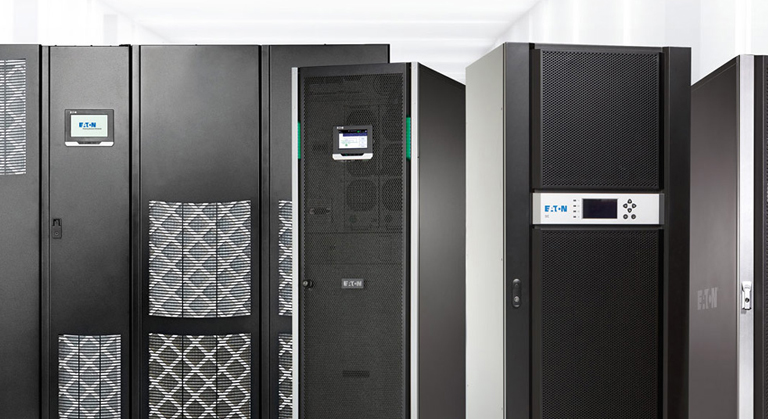Power blackout is a sudden but common phenomenon, an occurrence of which cannot be predicted beforehand. Thus, the wise are always prepared with an emergency power supply to avoid internal chaos, prevent data loss, and stop hackers from accessing the internal server of an organization while the power is down. Efficient power management is an essential investment which each and every organization needs to make to avoid such dire consequences.
Most organizations purchase UPS or Uninterrupted Power Supply systems to manage power outages. UPS supplies not only redirect the power stream onto itself but also monitors and controls surge and spikes to protect the internal systems from electrical damage.
Choosing the right backup power supply can be quite unnerving, especially when the market offers a wide variety of UPS systems to choose from.
This article will illuminate 6 effective tips which will assist you to choose the correct UPS suited to your needs.
-
Know the Types:
Similar to all products available in the market, a number of options are also available for UPS power supplies as well. So before you set out to buy the device, gather detailed knowledge about the kinds of UPS systems available and their special features. Each type is best suited to power a certain kind of equipment. So, it’s best to know what kind of gadget the UPS will be supporting.
For instance, if you are looking for a cost-effective UPS to power your desktops, it’s best to opt for an offline or standby UPS. These are also the best choice if power cuts are rare in your area or do not persist for long. To protect your server or main data center from unauthorized infiltration, you can either opt for a line-interactive UPS or an online UPS.
-
Check the Performance of The System:
A UPS power supply is of little value if it cannot carry the load of the systems connected to it. As a matter of fact, the right UPS system must generate at least 25 percent more power than all the equipment connected to it to keep them running in the event of a power cut. So it is advisable to calculate the total power required by the equipment to operate so that you can make an informed choice while purchasing the UPS.
Also, make sure that the UPS supply you are opting for is capable of handling overloads and can also step the loads while operating during a power blackout or surge.
-
Runtime Provided by the Backup Power Supply:
The primary job role of a UPS power supply is to prevent the equipment attached to it from shutting down during load shedding. So, it is imperative to know the total backup runtime the UPS will provide to help the user finish an ongoing work and prevent the system from closing down. While some UPS supplies run long enough to save data and shut down the system properly, others help us to work unhindered throughout the duration of the blackout.
For instance, if an ICU in a hospital requires power backup for a minimum of 1 hour, it would make no sense to purchase a backup power supply which could render support for only 30 minutes.
-
Number of Outlets Offered:
Most of us focus solely on the price and the type of UPS we want to buy, and seldom only we check the number of outlets the emergency power system offers. If you need to power a total of 6 desktops, then make sure that the UPS supply you are buying is equipped with that many power outlets.
While many UPS systems come with eight or more outlets, it is better to check if all of them are powered by the battery. It is highly possible that out of eight only two are battery driven while the rest are not. Thus, it is better to make sure that all the outlets support battery power, so as not to hinder the smooth functioning of the systems while they are connected.
-
Warranty Period of the System:
The UPS as a whole works smoothly as long as the internal battery functions well before wearing out. Generally, the battery runs almost two to three years, which is also the duration of most warranties offered by the manufacturing companies.
It is important for you to know that the extension of warranty offered on UPS varies from one enterprise to the other. Regardless, it is the battery which gets the longest durations. In case your requirements are different from the standard practice, it is better to check the warranty options before buying the product so that you can get the best deal on the item.
-
Background Check for Reliability:
Once all the above-mentioned formalities are completed, it is better to conduct a background check on the product to get an unbiased opinion of the backup power supply. Given that the UPS power supply will be used in time of emergency, its reliability is a major factor to be considered. In case the UPS is used to power vital equipment in an operation theater of a hospital, seconds delay in restoring power or not being able to carry the load of the machinery can prove fatal for someone’s life.
In Conclusion
Unpreparedness and disorganization in the face of emergency can only lead to loss, be it financial or data. Given that our existence depends solely on power and its availability, it is crucial to arrange for a backup power supply to tackle long- and short-term blackouts. The tips discussed in this article will surely assist and guide you to make the right choice while buying a UPS power supply.
[su_button url=”https://lorbel.wpengine.com/contact-us/” style=”flat” background=”#4461A0″ size=”14″ center=”yes” radius=”0″]CONTACT US[/su_button]

